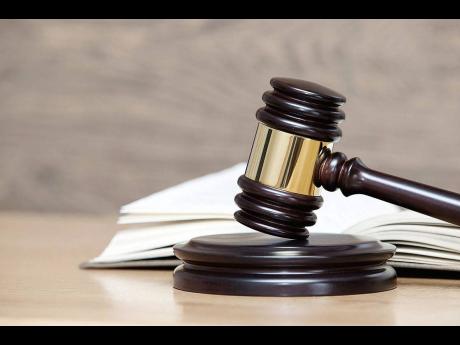Court slashes software developer’s $600m award to $8m in Paymaster dispute
In a crushing blow, Paul Lowe, who has been locked in a battle with Paymaster for more than two decades over the use of his software, had his $600-million award for damages reduced to $8 million.
In a judgment delivered on Monday, the Court of Appeal not only reduced the principal sum by 98 per cent, but also ordered Lowe to return $21 million of a $30-million payment he was given by Paymaster as a condition of obtaining a stay of execution in the Court of Appeal.
The ruling overturned the Supreme Court judgment in which Justice Lisa Palmer had ordered Paymaster to pay Lowe $282 million for the financial loss that he had suffered. The award, coupled with interest covering the period from August 25, 2000, to June 11, 2020, amounted to approximately $600 million.
Justice Palmer Hamilton, who then assessed the damages, found that Lowe suffered financial losses because of an injunction that prevented him from selling his bill-payment software locally and internationally.
The Court of Appeal panel, comprising President Justice Patrick Brooks, David Fraser and Kissock Laing, however, found that the damages did not rise to that amount, and reduced the award to $3.6 million, plus six per cent interest from August 25, 2000, to August 25, 2020. The new sum amounts to a little over $8 million.
Paymaster, a bill-payment company founded by Ambassador Audrey Marks, had brought a claim against GraceKennedy Remittance Services Limited (GKRS) and Lowe after the computer programmer sold a bill-payment software to the food and financial conglomerate to launch its subsidiary, Bill Express.
EXECUTIVE RIGHTS TO SOFTWARE
Paymaster claimed it had exclusive rights to the software, which it had purchased from Lowe, who subsequently sold the bill-payment software to GKRS. After the suit was filed in 2000, the Supreme Court granted an order barring Lowe from using the software.
Lowe and GKRS were eventually successful in the case, with the court ruling that Lowe was the owner of the software.
Paymaster appealed, and in 2015, the Court of Appeal dismissed the action concerning breach of copyright but allowed its appeal in relation to breach of confidence.
Paymaster and GKRS subsequently appealed to the United Kingdom-based Privy Council, which ruled in favour of GKRS with respect to the Court of Appeal’s ruling for breach of confidence.
The trial before Justice Palmer Hamilton in 2020 was commenced upon Lowe’s application to enforce the cross-undertaking as to damages which was given by Paymaster when it obtained the injunction in August 2000.
On Monday, Maurice Manning, KC, described the Court of Appeal ruling as a “huge win” for his client.
“Before taking over representation for Paymaster in this matter, the court had already held that Mr Lowe was wrongly restrained from using his software and entitled to pursue damages. However, it does not follow that he suffered the extraordinary losses that he claimed,” Manning said.
Manning was part of a team from Nunes, Scholefield, DeLeon & Co, along with Mark Paul Cowan and Allyandra Thompson, who represented Paymaster.
Cowan stated further: “We are grateful for the panel’s patient consideration of the issues, including some of the more technical aspects of the case.
“The Court of Appeal accepted our legal submissions on the lack of evidentiary support for matters related to profitability and market behaviour. It also accepted our submissions on the obsolescence of Mr Lowe’s DOS-based software as the world had moved on to Microsoft’s Windows not long after the injunction was granted in August 2000,” he said.
According to Cowan, Lowe was free to write new codes to achieve the same functionality as the software programme referred to as ‘The Paymaster Multiple Collection Program’. But he said Lowe failed to mitigate his losses by writing new codes, as he wrongly interpreted the injunction to mean that he was restrained from exploiting the idea of a multiple bill payment and collections system.
Cowan said the appellate court, as a result, determined that it would not be appropriate to award damages beyond August 2002.
Additionally, he noted that the court upheld a fundamental principle in copyright law, to wit, that copyright protection extends to the expression of ideas and not the ideas themselves.
“In the realm of computer programming, copyright protection lies in the “source codes” and “object codes” (the literary elements of a computer program) rather than the functionality of the programme,” Cowan stated.
Nonetheless, he said, the team is happy with the ruling and hopes that this is the end of a long and tortuous saga between the parties.
Meanwhile, Lowe’s lawyer, Vincent Chen, said he and his client were shocked by the ruling and are contemplating appealing the decision.
“We believe that the court has fallen into error and we would like to see it corrected as our court should report accurately the law, our interest in the jurisprudence warrants that the principles are applied accurately,” he said.

